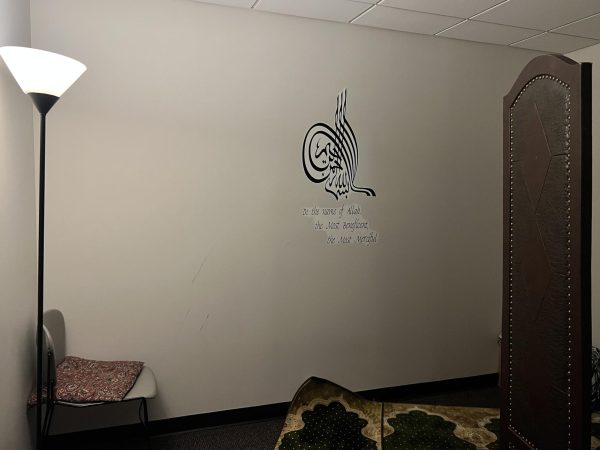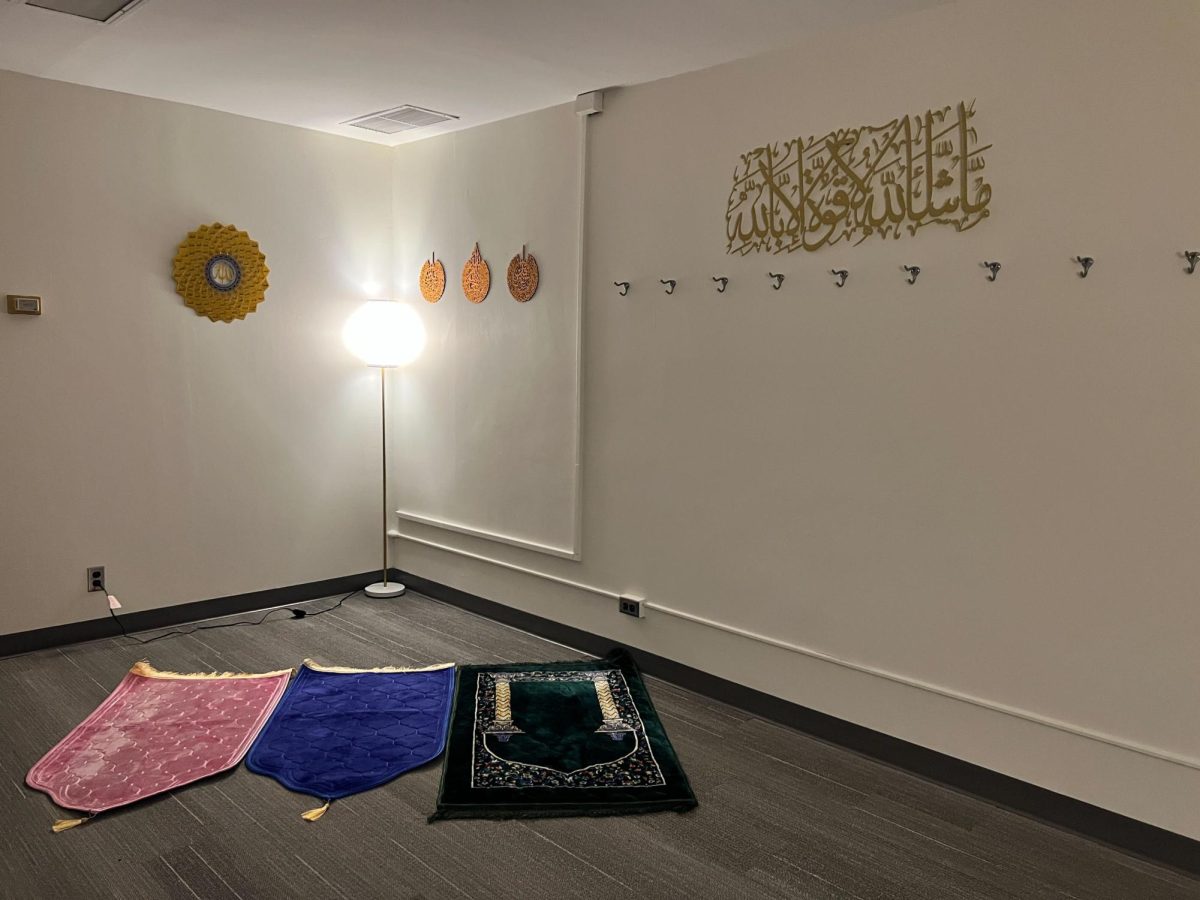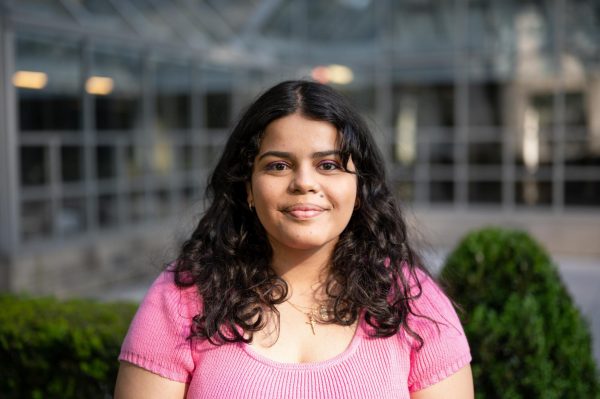Fordham University’s Campus Ministry, along with the Muslim Students Association at Lincoln Center (MSALC) and the United Student Government at Lincoln Center (USGLC), worked in collaboration to renovate the prayer room on the street level of the Leon Lowenstein Center. Renovations began after initial conversations took place during the summer and concluded in December.
Erin Hoffman, director of Campus Ministry for Lincoln Center, said that as the Muslim community continues to grow at Lincoln Center, the street level prayer room expanded capacity for Muslim students to pray on campus. According to Hoffman, a second prayer room located on the third floor of the Lowenstein Center will soon undergo similar changes.
She explained that these renovations were the product of larger conversations between Campus Ministry, USGLC and MSALC. Hoffman added that members of the campus community hadn’t “looked holistically at the space and how it was meeting the needs of the community” in quite some time.
The prayer room required updated maintenance and practical decor, Hoffman expressed. While the room had undergone regular upkeep and was repaired when needed, Hoffman says that an “intentionality” and “holistic” approach were key in looking at the needs of the prayer room.
Zayn Price, Fordham College at Rose Hill ’27, described it as critical that students of the Islamic faith have access to “traditional and proper” Islamic praying areas. Price believes that renovations made to the prayer room are a positive improvement for Muslim students.
“We should be respected in our praying traditions and processes,” he said.
This list of proposed upgrades were recommended in collaboration with MSALC, who worked with Hoffman throughout the renovation process to communicate the needs of Muslim students using the prayer room.

MSALC did not respond to The Observer’s request for comment prior to the time of publication.
According to Hoffman, the renovations also aimed to improve the atmosphere of the space, rather than focusing on physical upgrades.
“My hope is that the overall ambience of the room feels like a sacred, and welcoming, and hospitable and spiritual space,” she said.
These renovations, according to Hoffman, consisted of painting the walls, cleaning the carpets, creating “more adequate space” for the storage of shoes and prayer mats, as well as upgrading the privacy screen used to separate the male and female sides.
“We should be respected in our praying traditions and processes.”Zayn Price, Fordham College at Rose Hill ’27
The director of Campus Ministry added that while there has always been a privacy screen, the previous one had holes. Members of the community requested barriers without holes for the room to “better maintain the separation.”
Price has utilized the prayer rooms at the Rose Hill campus and hopes to use the space at Lincoln Center. He wishes the prayer rooms were larger in size to adequately accommodate Muslim students.
In addition to allotting a larger space for prayer, Price also advocates for the rooms to be segregated by sex as opposed to the wooden divider. In Islam, gender segregation is commonplace at mosques. During prayer, congregants are almost always separated by gender.
“Having to pray in the same room as the sexes is not traditional, it’s not how it’s done at all, it’s not ideal,” Price said.
Alongside designating rooms by gender and providing a larger space for congregation, Price also believes Fordham should allot funding for Islamic books or prayer mats for students to use in their dorms.
Hoffman shared that because the prayer rooms on both the street level and third floor are not always large enough for Jummah prayers, a ritual prayer performed on Friday afternoons, Campus Ministry has been looking into creating Jummah prayer kits for students to use in other, larger spaces.
Regarding future renovations, Hoffman said that the third floor prayer room will also soon be painted and “de-cluttered” in order to fit more people into the space. Decor will also be divided between the rooms by MSALC editorial board members depending on need and space.


